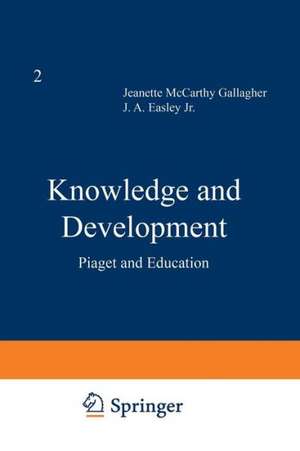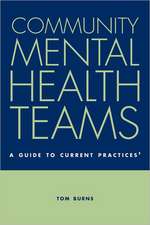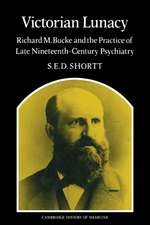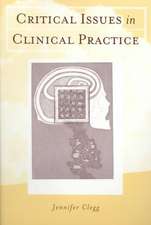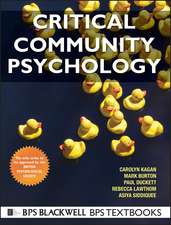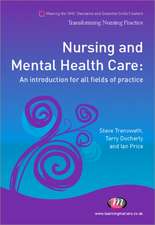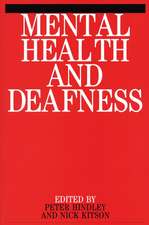Knowledge and Development: Volume 2 Piaget and Education
Editat de J. M. Gallagheren Limba Engleză Paperback – 17 mar 2012
Preț: 388.72 lei
Nou
Puncte Express: 583
Preț estimativ în valută:
74.38€ • 77.87$ • 61.55£
74.38€ • 77.87$ • 61.55£
Carte tipărită la comandă
Livrare economică 07-21 aprilie
Preluare comenzi: 021 569.72.76
Specificații
ISBN-13: 9781468434040
ISBN-10: 1468434047
Pagini: 320
Ilustrații: XX, 294 p.
Dimensiuni: 152 x 229 x 17 mm
Greutate: 0.43 kg
Ediția:Softcover reprint of the original 1st ed. 1978
Editura: Springer Us
Colecția Springer
Locul publicării:New York, NY, United States
ISBN-10: 1468434047
Pagini: 320
Ilustrații: XX, 294 p.
Dimensiuni: 152 x 229 x 17 mm
Greutate: 0.43 kg
Ediția:Softcover reprint of the original 1st ed. 1978
Editura: Springer Us
Colecția Springer
Locul publicării:New York, NY, United States
Public țintă
ResearchCuprins
1 Reflexive Abstraction and Education: The Meaning of Activity in Piaget’s Theory.- 1. The Meaning of Activity in Piaget’s Cognitive Theory: An Introduction.- 2. Concept of Phenocopy.- 3. The Mechanism of Reflexive Abstraction.- 4. Reflexive Abstraction and Contradiction.- 5. Conclusions and Future Directions in Applying Piagetian Theory to Education.- References.- 2 Moral Development and Moral Education: Piaget, Kohlberg, and Beyond.- 1. The Case for Moral Education in the Schools.- 2. Piaget’s Theory of Moral Development.- 3. Kohlberg’s Theory of Moral Development.- 4. Developmental Moral Education: Putting Piaget and Kohlberg into the Classroom.- 5. Conclusion: Critique and New Directions.- References.- 3 Early Education and Piagetian Theory: Applications Versus Implications.- 1. Applications of Isolated Parts of Piaget’s Work.- 2. Implications of Piaget’s Constructivism.- 3. Conclusion.- References.- 4 The Impact of the Work of Piaget on Science Curriculum Development.- 1. Introduction.- 2. Some Basic Points in Piagetian Developmental Theory.- 3. The Early Years.- 4. Concrete Operational Thought and Understanding Science.- 5. The Move to Formal Operational Thought.- 6. Formal Operational Thought and Understanding Science.- 7. An Analysis of Some Scientific Concepts.- 8. Some Difficulties with Piaget’s Theory with Respect to Science Curricula.- 9. The Problem of the Existing Secondary Science Tradition.- 10. Curricula Which Have Used Piagetian Principles.- 11. Possible Uses of Piaget’s Work Suggested by the 1974/1975 CSMS Study.- 12. Curricula for the 80th to 20th Percentile of Population.- 13. Life Style and Formal Operational Thought.- References.- 5 Four Decades of Conservation Research: What Do They Mean for Mathematics Education?.- 1. Overview.-2. The Logistics of Genetic Epistemology.- 3. Piaget’s Overall Strategy.- 4. Toward a New Theory of Conservation.- 5. Mathematics Education and Conservation.- 6. Two New Questions.- References.- 6 Two Models of Human Behavior and Reading Instruction.- 1. Introduction to the Two Models.- 2. The Constructivist Position.- 3. Implications of Piaget’s Theory for Reading Instruction.- 4. On The Pedagogical Similarity of the Operant and Cognitive Models.- 5. General Piagetian Educational Recommendations.- References.- 7 Genevan Theory and the Education of Exceptional Children.- 1. Introduction.- 2. Individual Differences.- 3. Predominant Orientations.- 4. Research on Exceptionalities from a Genevan Perspective.- 5. Implications of Genevan Research and Theory for Special Education.- 6. Conclusions.- References.- 8 Piagetian Theory and Neo-Piagetian Analysis as Psychological Guides in Education.- 1. Reflections on Piaget and Education.- 2. The Metasubject inside Piaget’s “Epistemic Subject”.- 3. Toward a Piagetian Metasubjective Technology for Education.- References.
